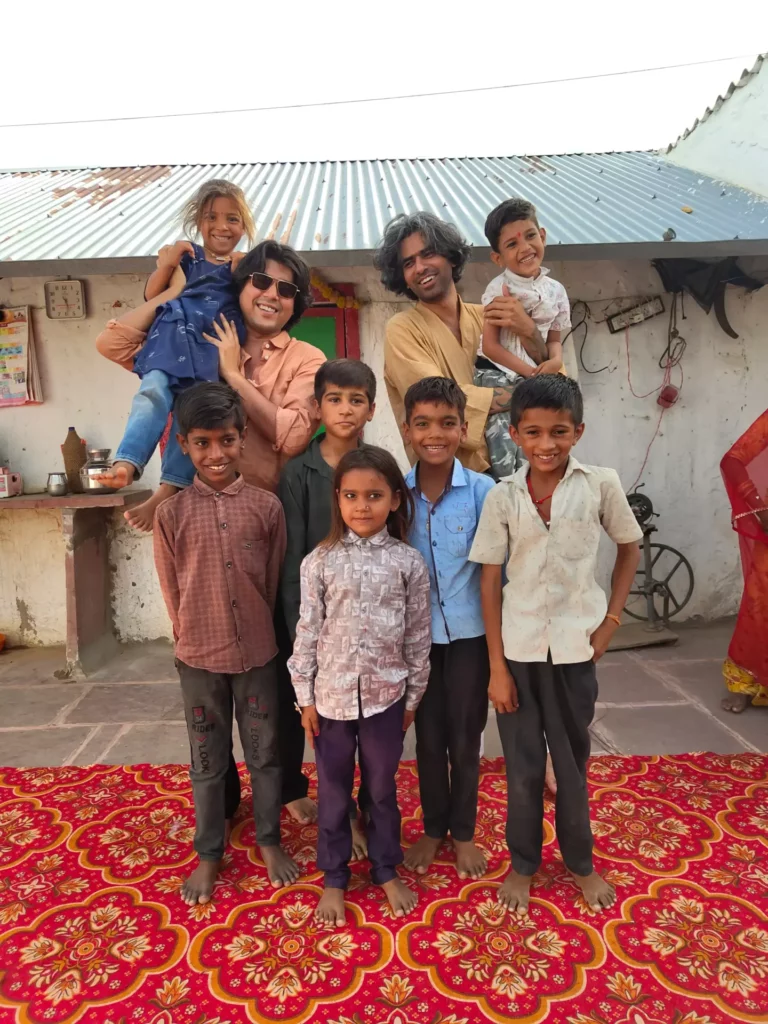by Saransh Sharma and Ashutosh Kumar
“Let’s go to Jodhpur to meet Mr. Jairoopa Rao,” Saransh said, almost casually. I was instantly up for it. Why? Pure curiosity. How do these people work behind the scenes? What kind of life do they live in that deserted area? These questions circled in my mind as we booked flight tickets right there on the spot, committing to visit weavers in a village 80 kilometers from Jodhpur, where temperatures soar to 45°C and ancient craftsmanship survives against all odds.
The backstory of how we even knew about this place speaks to the magic of genuine travel. During COVID-19, Saransh and his partner Cici had driven from Dharamshala to Tamil Nadu with one mission: to find people who could inspire in adverse times. When he asked a complete stranger where he could find such artisans, that random encounter led him to Jairoopa Rao. Sometimes the best discoveries happen when you’re simply open to the unexpected.
Jodhpur airport doubles as an Indian Air Force base, and stepping off the plane at 2 PM felt like entering another planet. The dry heat immediately announced that we’d crossed into desert territory—the kind that makes your body understand geography in ways maps never could.
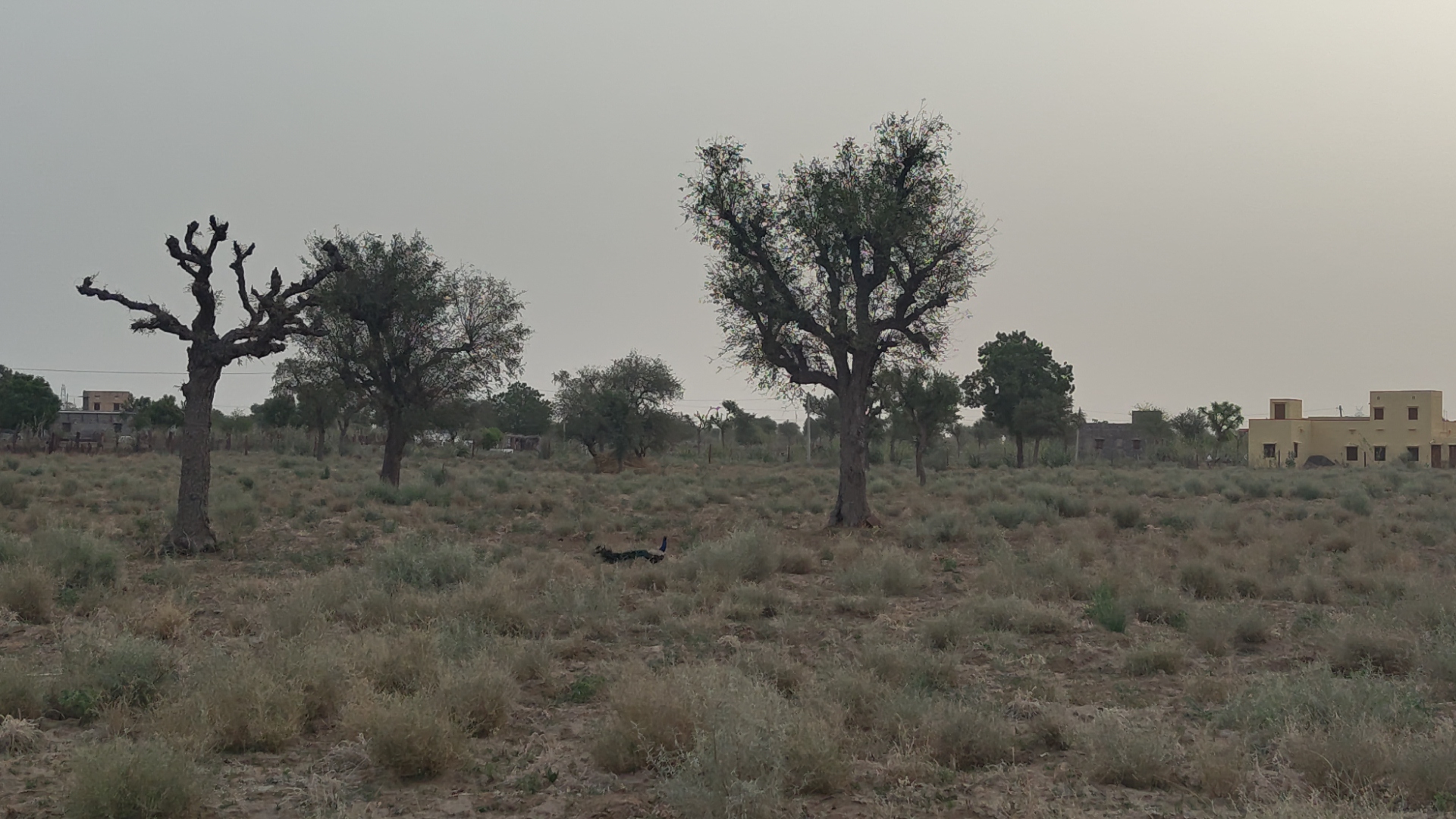
The two-hour cab ride to meet Jairoopa Rao gave me time to sit with my questions. What would we find? How would we be received? The landscape rolling past the windows provided hints: endless sand, sparse vegetation, and a vastness that makes you feel both insignificant and deeply alive.
When I first saw Jairoopa Rao, he embodied everything I hadn’t realized I was expecting. Big mustache, traditional dhoti-kurta, and a smile that immediately made a stranger feel welcome.
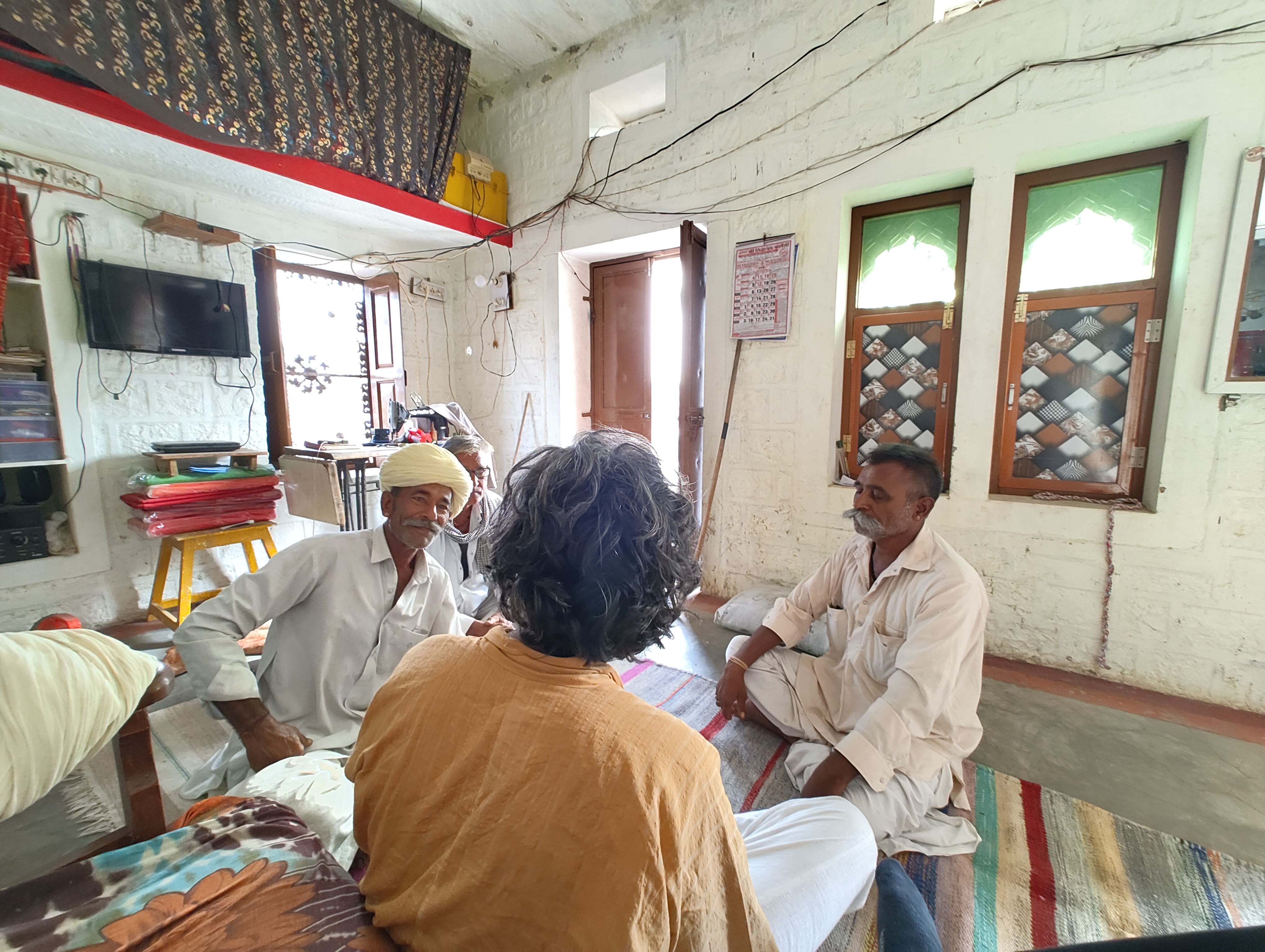
But it was what happened next that caught me off guard. The moment we stepped out of the car, children appeared from everywhere. Not just a few curious kids, but a whole gathering of excited faces who’d rarely seen a car up close. Here were economically marginalized people, often outcast by mainstream society, yet possessing skills that would humble any modern artisan.
The setting felt mythical: sand stretching everywhere, peacocks strutting through landscapes filled with flora and fauna perfectly adapted to extreme conditions. For Saransh, this was familiar. For me, it was stepping into a different way of existing.
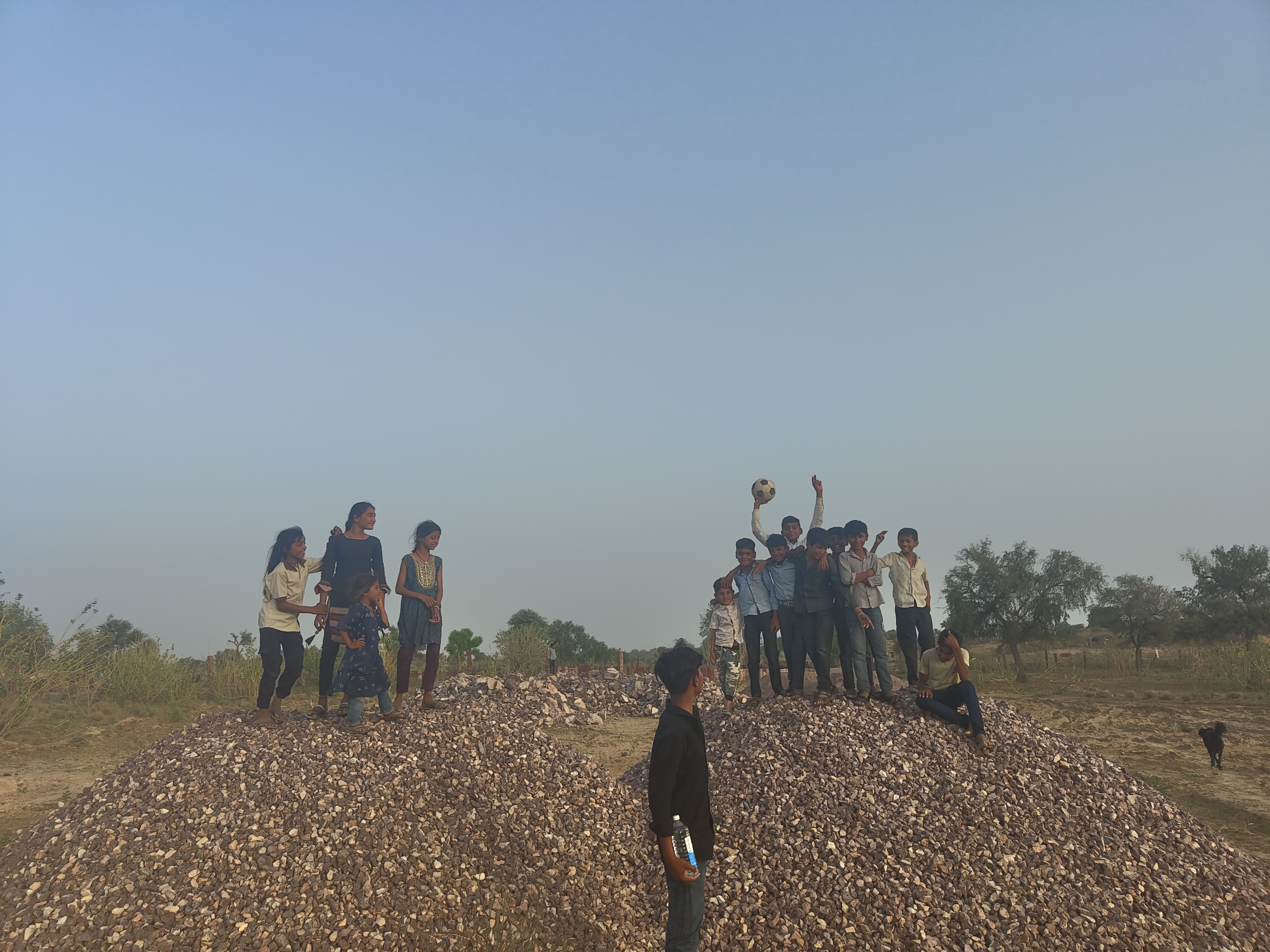
As the sun began setting, the children took me on a village tour that became one of those experiences you carry forever. They peppered me with questions, made gentle fun of me (which I loved), and showed me something rare: kids living completely in the moment. When I challenged them to race to a distant tree, they exploded with joy. These children weren’t glued to screens—they were creating their own fun, their own connections.
After tea—that universal gesture of hospitality—Jairoopa Rao led us to his workshop. What I saw humbled me: every carpet created entirely by hand on traditional looms. No machines, no shortcuts. A woman demonstrated the process, her hands moving with confidence earned through years of mastery. When Jairoopa explained it takes 7-10 days per piece, I understood why their work commands respect.
Dinner introduced me to survival wisdom disguised as cuisine: sangri (made from khejri tree beans) with bajre ki roti that cools the body in extreme heat. The khejri tree, I learned, is a lifeline—providing food, medicine, and shade.
What followed was magic. Under stars unseen in cities, we formed an impromptu orchestra: Saransh on flute, Jairoopa Rao on harmonium, me attempting ragas, and children joining in. Music became our common language.
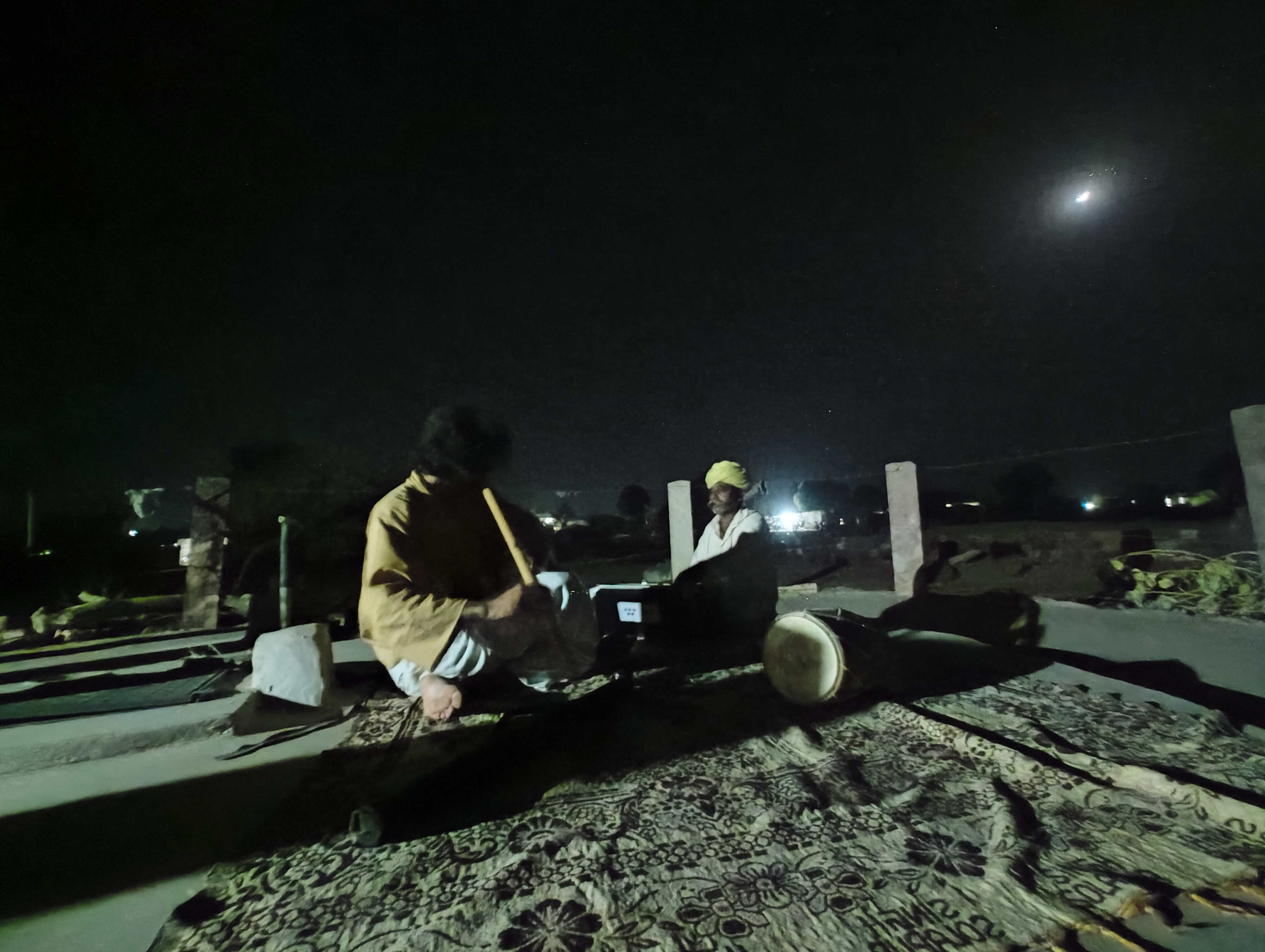
We slept on khatiya rope beds—marvels of ventilation design—but the windy night sent sand into our mouths. Dawn revealed harsher truths: Jairoopa Rao showed how 90% of their earnings go toward clean water, a crisis unchanged since the 1990s despite government photo-ops.
After breakfast (more bajre ki roti and salted buttermilk), Jairoopa displayed his carpets. The precision stunned me. I bought one; Saransh bought two and a leather bag. Mahendra, the only smartphone-user in the family, became our bridge between craft and commerce.
Our final group photo with Jairoopa Rao and the children captured more than smiles—it froze a lesson about resilience, neglect, and finding joy in simplicity.
This journey taught me that the best travels aren’t about places, but about people who change how you see the world.
Till then, Khamma Ghani, Kumno, and Namaste.
————————————————————————————————————————————————————————
Saransh Sharma. From Dharamshala, Himachal Pradesh. Working on fashion, design, and garments with artisans across India, currently based in Florence and traveling or exploring places to live in Italy. Here to learn and grow, as Italy is the fashion capital of the world.
Ashutosh Kumar. A wanderer from existence, a senior geopolitical analyst specializing in the Indo-Pacific region and global affairs. Writes extensively on international relations and defense issues for various magazines and think tanks. When not analyzing global affairs, he follows his passion for textiles, traditional craftsmanship, and clothing fashion, traveling to remote corners of India to meet weavers and artisans who preserve ancient techniques. His work bridges the analytical and the experiential, finding connections between geopolitical realities and the human stories that unfold at ground level.


